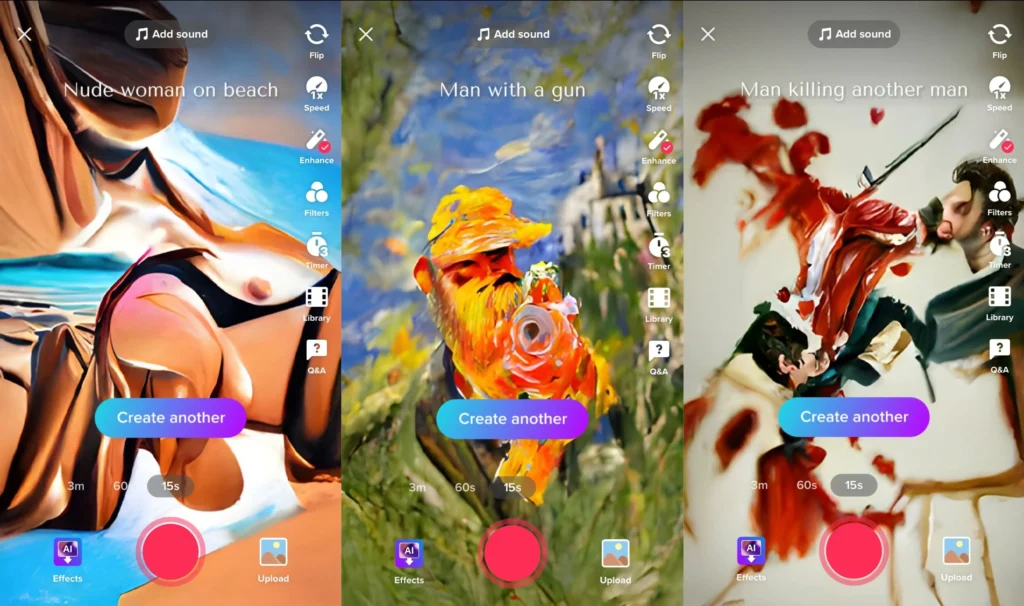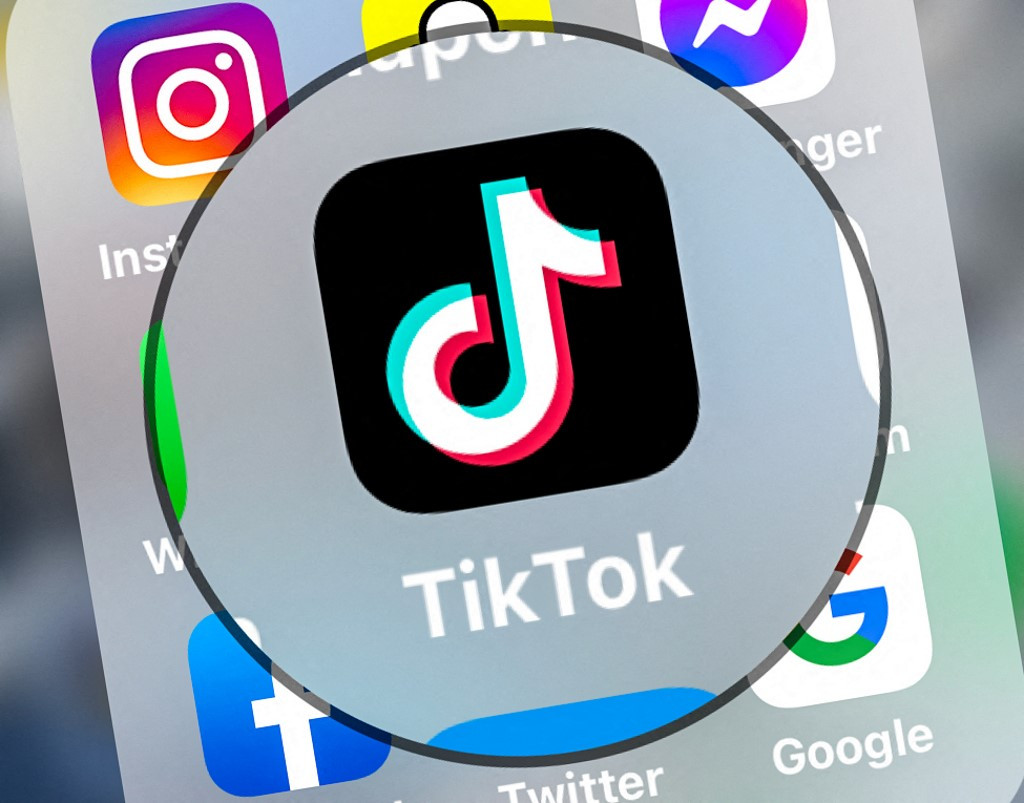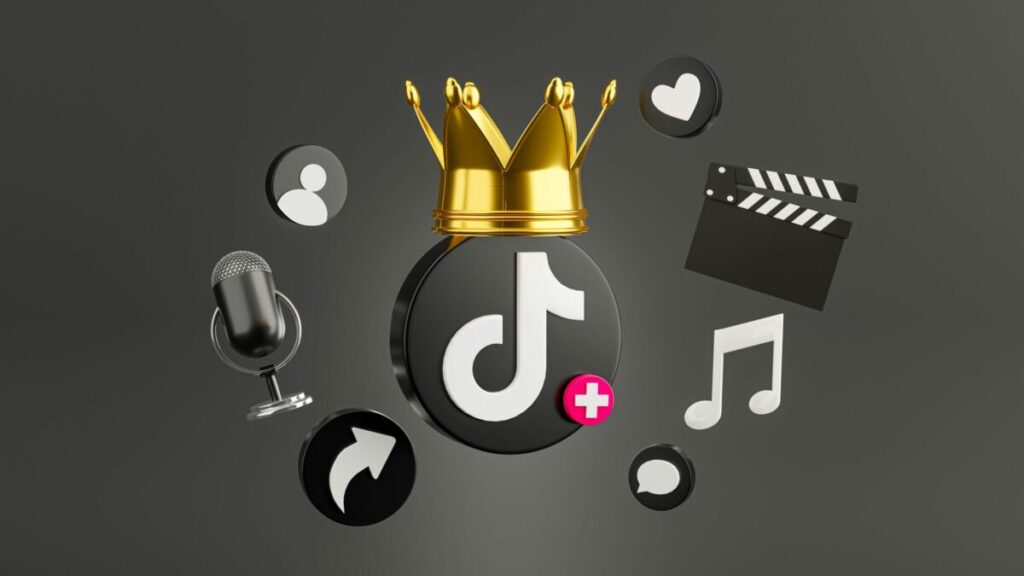“Just one more video.”
Famous last words before realizing you’ve spent an hour scrolling through TikTok, completely hypnotized by an endless stream of dance challenges, life hacks, and oddly satisfying slime videos.
But what’s really happening behind the screen? Why does TikTok feel less like an app and more like a portal you can’t escape? The answer lies in one of the most sophisticated AI algorithms ever designed—an invisible puppeteer pulling the strings of our attention.

The Science of Scrolling: How TikTok’s AI Works
At its core, TikTok’s algorithm is a masterclass in machine learning and behavioral psychology. It doesn’t just track what you watch; it studies how you watch.
Here’s what the algorithm considers:
- Engagement Signals: Likes, shares, comments, and saves aren’t just for creators. They’re breadcrumbs for the algorithm to follow.
- Watch Time: Did you watch the full video or scroll past after two seconds? The longer you stay, the stronger the signal.
- Rewatches: Repeating a video is like shouting, “I love this!” into the algorithm’s ear.
- Content Preferences: What type of videos do you consistently engage with? Cooking hacks? BookTok? Conspiracy theories?
- Device & Location Data: Yes, even your phone model and where you are play a role.
This data gets crunched through an AI model that assigns a “relevance score” to every video. The higher the score, the more likely that video will pop up on your For You Page (FYP).

📊 The Numbers Behind the Addiction
Let’s break down why TikTok is in a league of its own:
| Platform | Average Daily Usage (2023) | Engagement Rate | Algorithm Adaptability Score |
|---|---|---|---|
| TikTok | 95 minutes | 5.96% | 9.5/10 |
| Instagram Reels | 51 minutes | 0.83% | 8/10 |
| YouTube Shorts | 45 minutes | 1.50% | 7/10 |
| Facebook Watch | 33 minutes | 0.65% | 6/10 |
- 90% of TikTok users open the app multiple times a day.
- The average user session lasts 10.85 minutes, far surpassing other platforms.
- TikTok’s algorithm can predict user preferences with just 30 minutes of interaction data—outperforming even Netflix’s recommendation engine.
It’s not magic. It’s data—relentlessly analyzed, optimized, and weaponized to hold your attention.

Why Is It So Addictive? The Psychology of the FYP
TikTok isn’t just an app; it’s an attention trap designed around key psychological principles:
🎰 1. Variable Reward System (a.k.a. The Slot Machine Effect)
Imagine pulling a slot machine lever: sometimes you win, sometimes you don’t. That unpredictability keeps gamblers hooked—and TikTok uses the same principle.
You never know if the next swipe will bring a hilarious meme, an emotional story, or the perfect life hack. This randomness triggers dopamine spikes, making the app feel rewarding even when you’re just… scrolling.
🌍 2. Hyper-Personalization
TikTok’s AI doesn’t care about your friends or followers. It cares about you—your quirks, preferences, and even your subconscious interests.
- #BookTok for literature lovers
- #CleanTok for those obsessed with organization
- #AltTok for niche subcultures
These micro-communities create a sense of belonging, making it hard to leave because TikTok feels like it “gets you.”
🧠 3. Reduced Decision Fatigue
Unlike YouTube, where you choose what to watch next, TikTok decides for you. This removes the mental load of decision-making, letting you slip into passive consumption mode—a psychological sweet spot for prolonged engagement.

The Ethical Dilemma: Is It Manipulation or Just Good Design?
While TikTok’s algorithm is a technical marvel, it raises some uncomfortable questions:
🚩 1. Mental Health Impact
The endless scroll isn’t just annoying; it’s potentially harmful. Studies link excessive TikTok use to increased anxiety, depression, and attention disorders, especially among younger users.
📊 Quick Stat:
- 63% of users admit they’ve lost track of time on TikTok.
- 35% report sleep disturbances due to late-night scrolling sessions.
🔄 2. Echo Chambers and Polarization
The algorithm feeds you more of what you engage with, creating echo chambers. If you watch one conspiracy theory video, guess what’s coming next? More of the same—reinforcing beliefs without offering balanced perspectives.
🛡️ 3. Privacy Concerns
TikTok collects a staggering amount of data—not just what you watch, but your device type, location, and even your typing patterns. This raises significant privacy and security concerns, especially given TikTok’s ties to China.

📈 The Evolution of TikTok’s Algorithm: What’s Next?
TikTok’s AI isn’t static; it’s evolving.
- Real-Time Emotion Detection: Future algorithms may analyze facial expressions (through your front-facing camera) to gauge emotional reactions.
- Voice Pattern Analysis: Imagine the app adjusting recommendations based on the tone of your voice in comments or videos.
- Advanced Behavioral Predictions: AI models that predict not just what you like now, but what you’ll like in the future—before you even know it.

Final Thoughts: Are We in Control?
TikTok’s algorithm is a double-edged sword. On one side, it’s a brilliant feat of AI engineering, capable of curating content with mind-boggling precision. On the other, it’s an invisible force subtly shaping your attention, habits, and even your worldview.
So, the next time you find yourself lost in an endless scroll, remember: it’s not just you—it’s the algorithm. But with this knowledge, you’re one step closer to scrolling with awareness instead of just… scrolling.
Your attention is valuable. Use it wisely.

